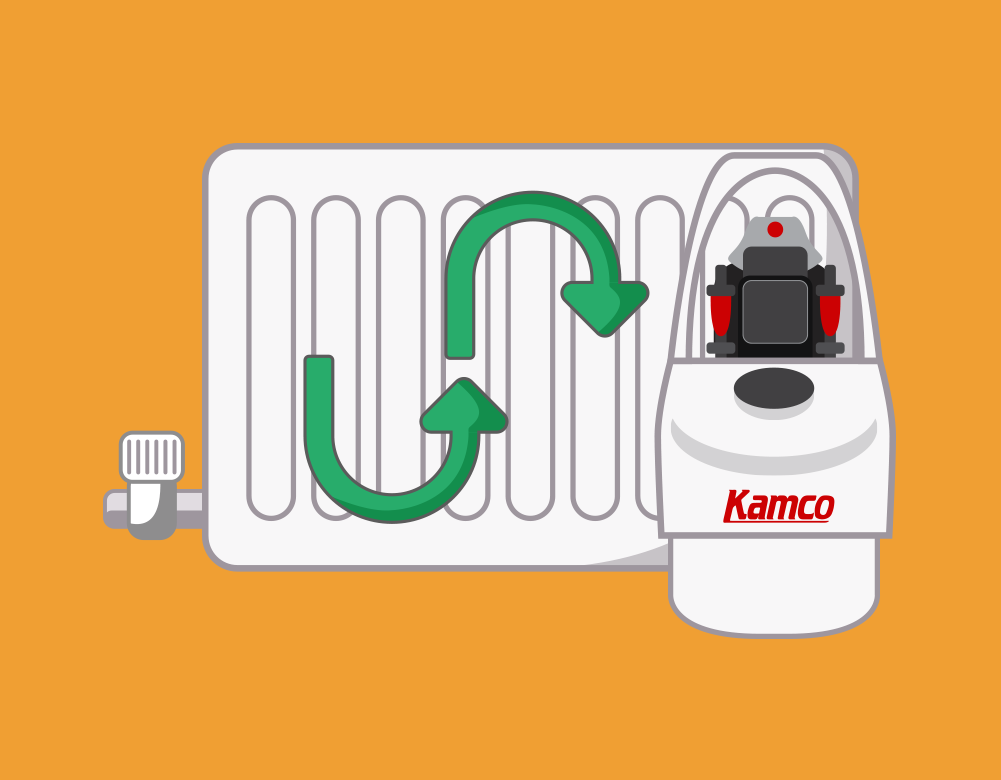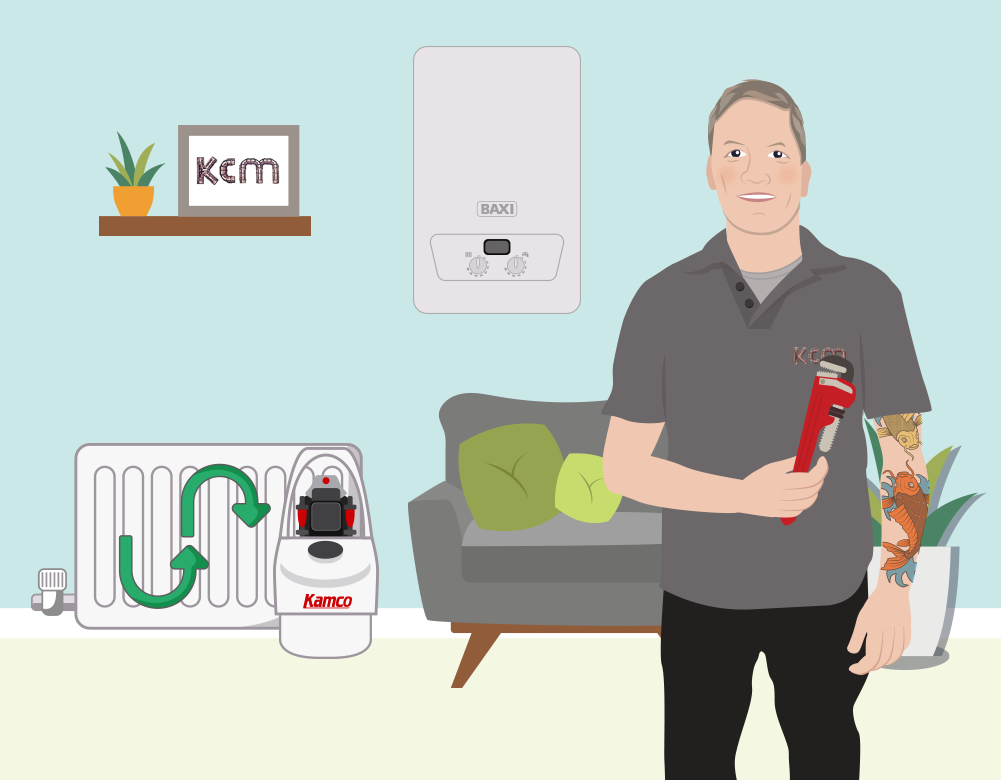Signs Your Radiators Need Powerflushing

Signs Your Radiators Need Powerflushing, and What to Expect
Over time, your central heating system can lose efficiency due to a build-up of sludge, rust, and debris inside the pipes and radiators. This build-up prevents hot water from circulating properly, leading to uneven heating and increased energy bills. The good news is that a professional powerflush can restore your system’s performance. But how do you know when it’s time to book one? Let’s take a closer look.
What Is a Powerflush?
A powerflush is a deep clean for your central heating system. Using specialist equipment and cleaning chemicals, a heating engineer will flush out sludge, rust, and scale deposits from your radiators, pipes, and boiler.
This process helps restore efficiency, prolongs the life of your heating system, and ensures your home heats up quickly and evenly.
Key Signs Your Radiators May Need Powerflushing
If your heating system is not performing as it used to, there are some tell-tale signs that indicate a powerflush could be beneficial. Look out for the following issues:
1. Cold Spots on Radiators
One of the most common signs of sludge build-up is cold spots, often at the bottom of your radiators. This happens because the debris sinks to the base, blocking hot water from circulating properly.
2. Radiators Take a Long Time to Heat Up
If your radiators are slow to warm up, it may indicate restricted water flow. This usually means there’s a blockage in the system that needs clearing out.
3. Uneven Heating Across the Home
Do some rooms feel much colder than others, even with the heating on? Uneven heating is another sign that your system isn’t working efficiently due to a build-up of sludge or air pockets.
4. Noisy Boiler or Radiators
Banging, gurgling, or whistling noises from your boiler or radiators often mean trapped air or sludge is circulating in the system. A powerflush can help resolve these noises.
5. Discoloured Water When Bleeding Radiators
When you bleed your radiators, the water should be clear. If it comes out dark, dirty, or sludgy, it’s a clear sign your system is clogged and needs professional cleaning.
6. Boiler Breakdowns or Frequent Repairs
A build-up of sludge can put unnecessary strain on your boiler, leading to breakdowns and costly repairs. If your boiler keeps needing attention, a powerflush may prevent future problems.
Benefits of Powerflushing
Booking a professional powerflush comes with several important advantages:
- Improved efficiency – Your radiators will heat up quicker and distribute warmth evenly.
- Lower energy bills – A cleaner system requires less energy to heat your home.
- Extended boiler lifespan – Reducing strain on your boiler means fewer breakdowns and a longer life.
- Quieter system – Say goodbye to gurgling and banging noises.
- Better water quality – Removing rust and sludge keeps your water clearer and healthier for the system.

What to Expect During a Powerflush
If you’ve never had a powerflush before, you might be wondering what the process involves. Here’s a breakdown of what happens:
- The engineer connects a specialist powerflushing machine to your central heating system.
- A mix of water and cleaning chemicals is pumped through your pipes and radiators at high speed, loosening sludge and debris.
- The dirty water is flushed out and replaced with clean water until the system runs clear.
- A corrosion inhibitor is added to protect your system from future build-up.
- The engineer will test your radiators and boiler to make sure everything is working efficiently before finishing the job.
When Should You Book a Powerflush?
Most heating systems benefit from a powerflush every 5–6 years, but if you notice the warning signs listed above, it’s worth booking sooner. It’s also a good idea to have one carried out when installing a new boiler, as this ensures the system is clean and protects your investment.
Final Thoughts
A heating system full of sludge and debris is not only inefficient but also costly in the long run. By looking out for the key signs—such as cold radiators, dirty water, or unusual noises—you can spot when it’s time for a powerflush. With improved efficiency, lower energy bills, and a more reliable boiler, the benefits are clear. If you think your radiators may need attention, contact a qualified heating engineer to discuss a professional powerflush.
